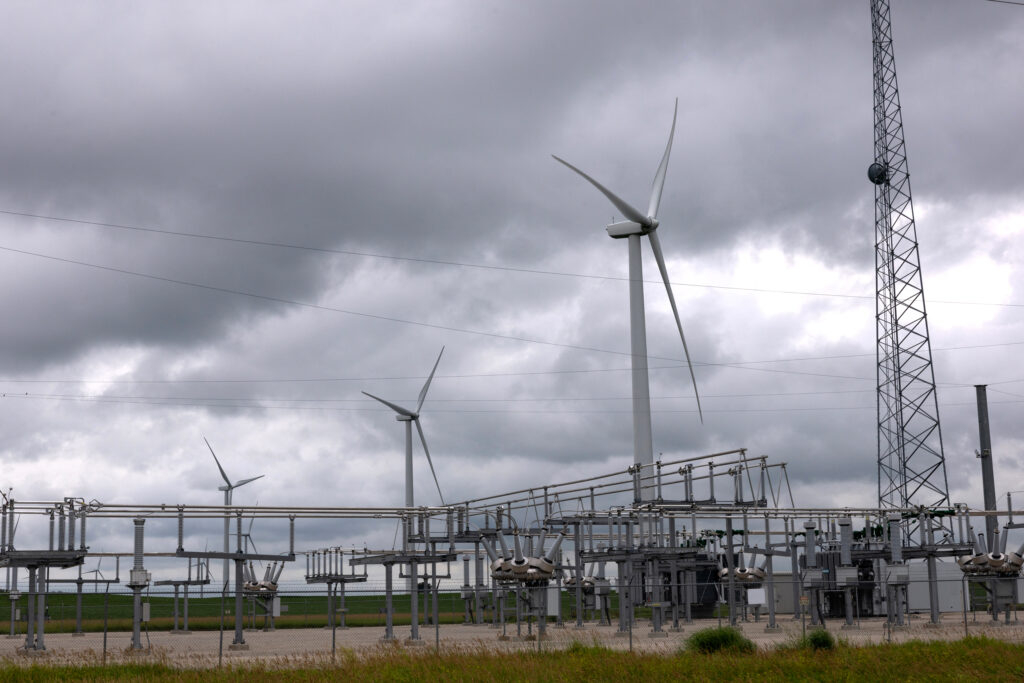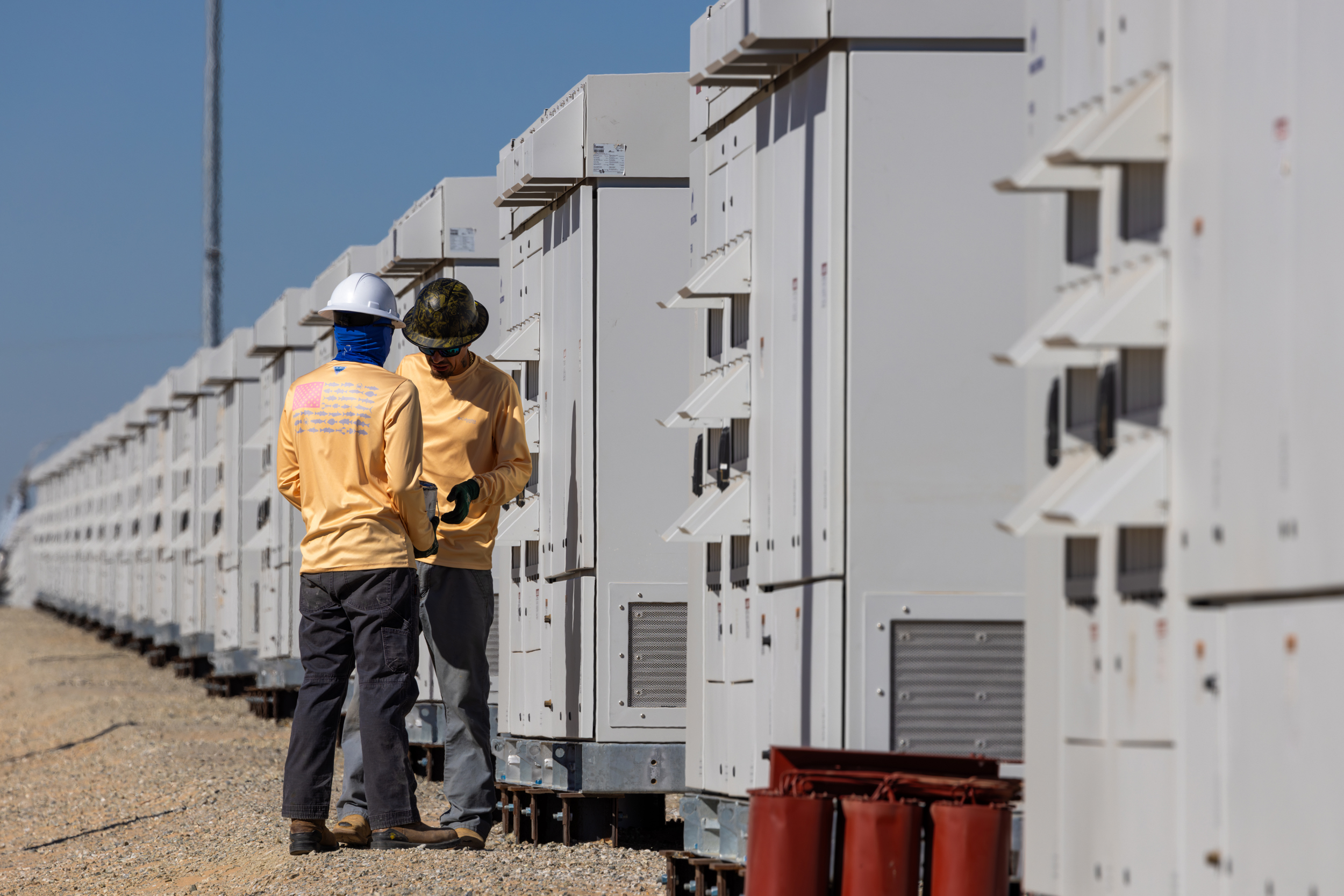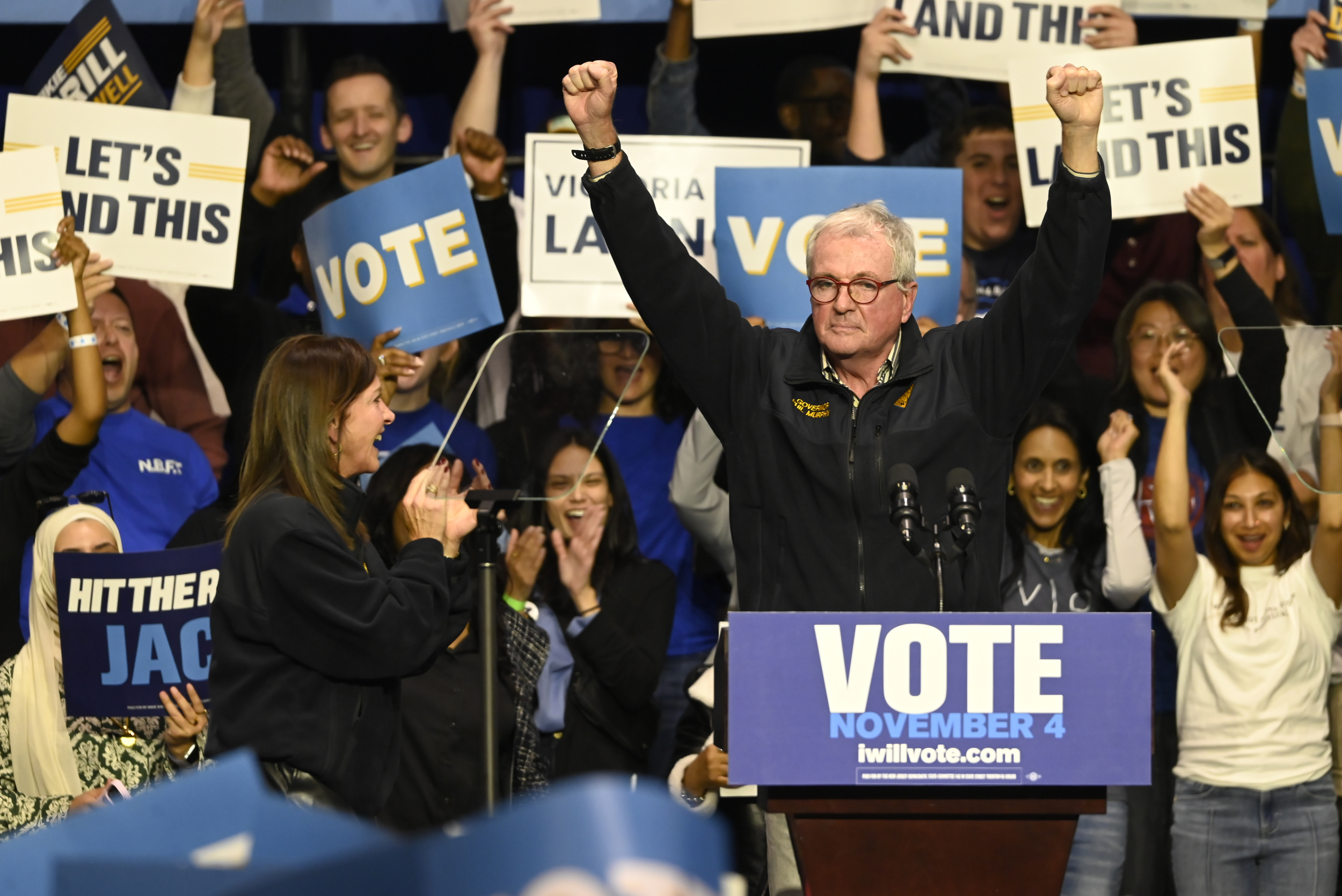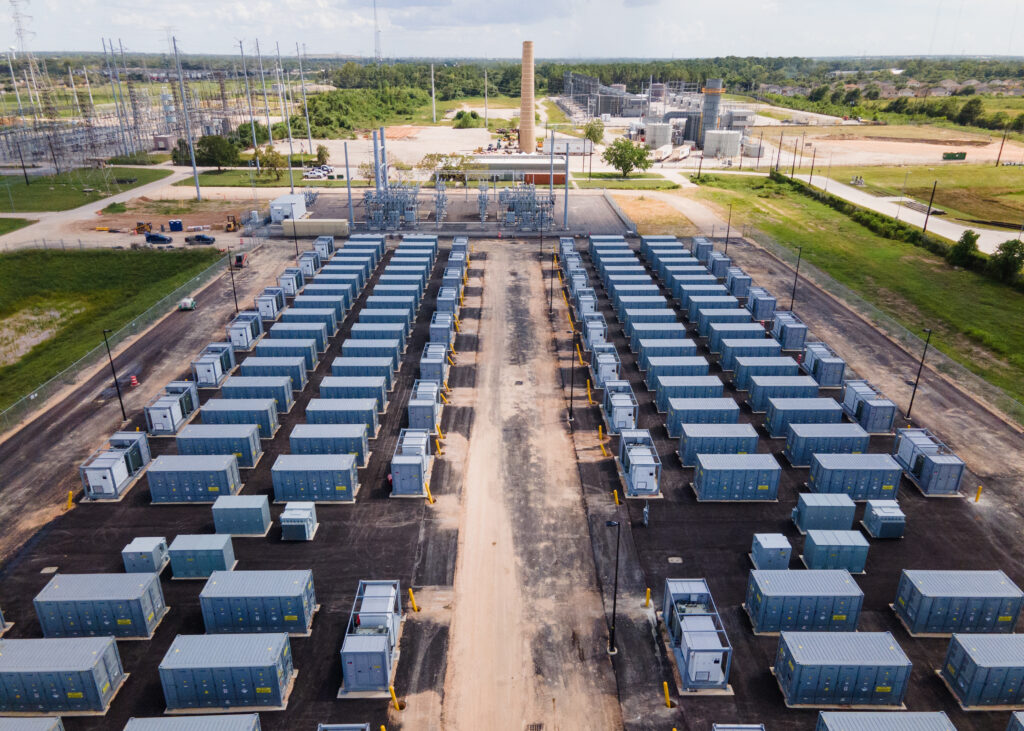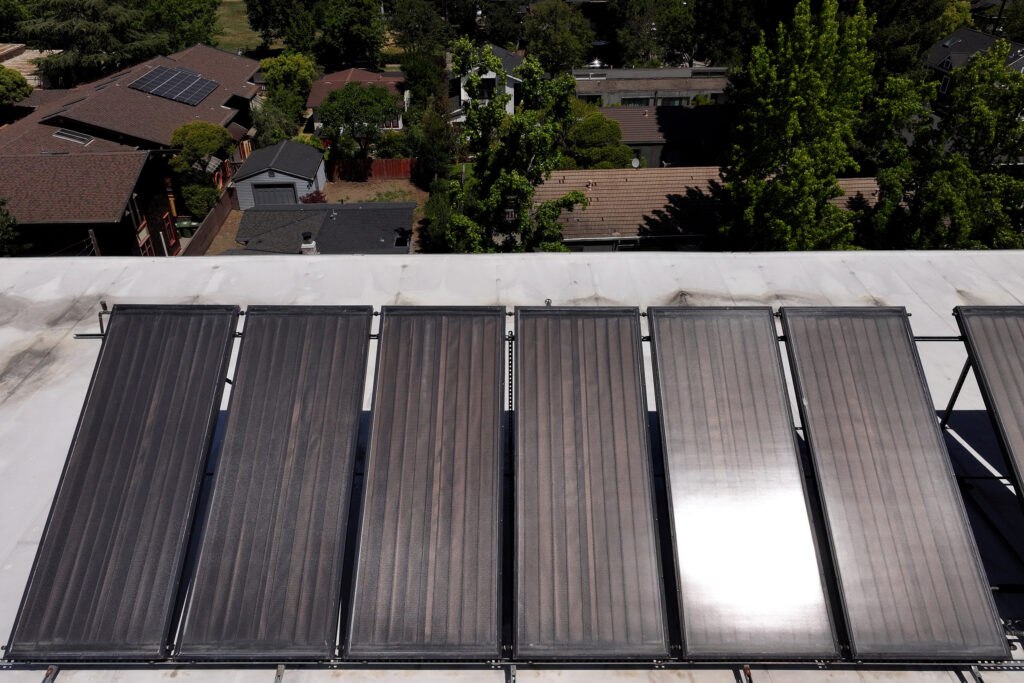Sen. Thom Tillis had cast off any election worries by the time he took to the Senate floor this week to provide a rare window into the lobbying that already is slowing down the U.S. transition to cleaner energy sources.
The North Carolina Republican announced Sunday that he would not seek a third six-year term in Congress, “navigating the political theatre and partisan gridlock in Washington.” The decision freed him to break cleanly with his party and oppose the sprawling megabill into which the GOP had stuffed President Donald Trump’s full agenda, including putting the brakes on a transition away from fossil fuels.
Tillis, in a bolo tie honoring the Lumbee Tribe of North Carolina, appeared as a man apart during the Senate’s marathon weekend session on the bill. He said he did not agree with the Democrats who saw the legislation as a giveaway to billionaires. But he blasted his fellow Republicans for provisions like cuts to Medicaid that he said would cause pain for hundreds of thousands of North Carolinians. Those concerns, much like those of the Lumbee people, whose long-standing pleas for federal recognition have gone unheeded, ultimately were pushed aside in the Senate’s 51-50 vote Tuesday to advance the legislation.
We’re hiring!
Please take a look at the new openings in our newsroom.
See jobs
As of the writing of this column, we still don’t know what will happen to the so-called “Big Beautiful Bill Act.” The Senate-revised legislation faces a rocky road in the House before reaching the president’s desk. But we do know what the bill is doing to clean energy. The debate itself has cast a cloud of uncertainty over the sector, drying up financing and throwing into question business deals and corporate planning.
Tillis sought to highlight that issue Sunday night when, having traded his bolo for a blue suit and red-patterned tie, he gave a glimpse of the behind-the-scenes pressure on Senators to choke off federal tax incentives for wind and solar energy.
“It’s another classic example where think tanks and people that haven’t worked a day in business are setting policy in the White House without a clue about what they’re potentially doing to our grid,” Tillis said.
He was referring to an author and fossil fuel evangelist, Alex Epstein, founder of the Center for Industrial Progress, who for a decade has been supplying an intellectual underpinning for those who favor a rapid withdrawal of federal support for clean energy. (In what seemed like a diss upon a dig, Tillis misremembered his last name as “Weinstein.”) Epstein, who once said he “proudly” worked for fossil fuel clients, rejects the scientific consensus on climate change and wrote the 2014 book “The Moral Case for Fossil Fuels.”
Tillis represents the No. 4 state in solar generating capacity and a top beneficiary of the Inflation Reduction Act incentives—$21 billion in private clean energy project investment has flowed to North Carolina since the IRA’s passage. He described how Epstein’s case withered when he brought the “self-described philosopher” into his office along with three people who work in the industry.
“One of them was someone who specializes in power purchase agreements for large businesses,” Tillis said, giving the example of one of the world’s largest retailers, a giant that only last year was accelerating its clean energy purchases toward its goal of 100 percent renewable power by 2035.
“Walmart is one of the most sophisticated buyers of electrons in the world,” Tillis said. “They map out their power requirements years in advance. They want to make sure that their food doesn’t spoil and they’ve got power running. They’ve already made several power purchase agreements with projects underway, folks.”
Those projects now may not be there because the Senate bill makes many wind and solar projects ineligible for federal tax credits unless they are “in service” by 2027—an even faster cutoff than the House version, which set a 2028 deadline.
There was a dizzying amount of wrangling in the Senate over the wind and solar language, and Tillis was not the only Republican raising concerns. The version of the bill that first emerged from the Senate Finance Committee called for a graduated phase-out of the tax credits starting at 60 percent for those that begin construction in 2026 to complete elimination for those that start construction after the end of 2027. Then, as Tillis put it, “somebody got cute” and changed the complete phase-out to cover any projects not “in service” by 2027. That was a huge change for developers, who may have some control over construction start dates, but far less control over when a project is actually “in service,” which can change due to supply chain and labor issues, as well as the decisions of permitting officials and grid operators.
Even more alarming, the version of the bill that emerged in the Senate over the weekend would have slapped a new excise tax on wind and solar. Advocates of clean energy had their hands full trying to get the new tax removed. Separate amendments were drafted by Sen. John Curtis (R-Utah) and by Sen. Joni Ernst (R-Iowa) to help wind and solar and ease the phase-out of tax incentives but fiscal hawks objected to them reaching the floor.
In the version of the bill the Senate passed, clean energy supporters were able to get the excise tax jettisoned, and Curtis took credit for an added provision that would give an array of clean-energy projects a safe harbor of sorts. They would be protected from the phase-out of tax incentives if they begin construction within the next 12 months. Curtis heralded the provision with a headline: “Certainty Today to Invest in Tomorrow.”
But the spectacle apparently has left financiers of clean energy with little certainty.
“The One Big Beautiful Bill Act has already devastated our business,” one community solar and battery storage company executive told the clean energy lobbying firm Echo Communications. The executive, who wanted to remain anonymous, laid out in the firm’s “Echo Chamber” blog how his company’s finance partners withdrew their backing the day after the House version of the megabill passed.
“Because the OBBB so catastrophically and retroactively changed the rules of the game, our lenders couldn’t be sure we could sell the projects we were developing,” the official said. “As a result, they understandably couldn’t extend additional capital.”
The executive said the firm has had to lay off more than 90 percent of its workers as a result. Only a month ago, its plan was to double in size over the next 18 months. “Those were good, high-paying jobs that Congress destroyed overnight,” the executive said.
The story illustrates that the debate in Washington is not just about the wind and solar industry losing federal dollars. It is about losing the surety that the nation is on a steady path to an energy transition where cleaner sources will overtake the deeply entrenched and well-capitalized sources that are pumping dangerous carbon pollution into the atmosphere.
“The larger issue is the extreme careening of federal policy in the United States,” said Chris Moyer, the founder of Echo Communications and a former Democratic staffer on Capitol Hill who now advises clean energy companies. “There’s no consideration of the business cycle. It’s all about the political cycle.”
This story is funded by readers like you.
Our nonprofit newsroom provides award-winning climate coverage free of charge and advertising. We rely on donations from readers like you to keep going. Please donate now to support our work.
Donate Now
Epstein perhaps inadvertently confirmed that point in a lengthy post on X in which he took umbrage at Tillis and explained the push to speed the phase-out to 2027. “The idea was, unless the subsidies truly terminate during Trump’s term, they have not terminated, and they will be extended, just like the [production tax credit] has a million times before,” Epstein said.
In other words, if Democrats take over in Washington in the 2028 election, support for clean energy could rise again. But Tillis argues that in their zeal to prevent that from happening, the fossil fuel ideologues are ignoring some realities, including the fact that they are throttling electricity supply at a time when new data centers and manufacturing—the kind of development Trump says he wants to spur—will require more energy.
“I want that philosopher to tell me that he understands how to plan out power over time when all these projects fail,” Tillis said, referring to the wind, solar and other alternative energy projects that lose federal support in the megabill. “Some will make it, some will get subsidized, some will go bankrupt. It won’t be Armageddon, but it’s going to be a problem.”
Other stories about the energy transition to take note of this week:
Solar Industry Warns That Congress Is Ceding Dominance to China: Corporate leaders in the solar industry are warming that a rapid phaseout of tax credits is bad for the United States and a boon to China, as Ivan Penn reports for The New York Times. President Joe Biden had sought to nurture solar development and a U.S.-based solar manufacturing industry, but the “One Big Beautiful Bill” would phase out most of those policies.
The EV Tax Credit Deadline May Hit Buyers Harder Than Expected: Car dealers are bracing for a sudden end to tax credits for new and used electric vehicles due to the bill in Congress, although some dealers won’t miss the credits, as Kevin Williams reports for InsideEVs in a roundup of auto industry news. If a dealer is holding a lot of EV inventory, then the rapid end of the tax credit could leave them with vehicles that are much harder to sell. At the same time, some dealers were not fans of the tax credits for a variety of reasons, including that the eligibility requirements were confusing for buyers.
Solar and Batteries Helped Reduce Chance of Summer Blackouts in Texas: The risk of a power supply emergency has fallen this summer because of new solar and batteries that have come online on Texas’ grid, as our colleague Arcelia Martin reports. Pablo Vegas, CEO of the Electricity Reliability Council of Texas, testified that the risk of a grid emergency during summer peak hours has fallen from 16 percent last year to less than 1 percent this year. The main difference is new resources that are now available to support the grid. The leading types of resources in terms of capacity are solar and batteries.
These Fishermen Decided to Work for the Offshore Wind Industry and Now Get Called Traitors: More than 100 East Coast fishermen are also working for offshore wind developers in a partnership modeled on one in Northern Ireland that led to mutual benefit. But this cooperation has run into challenges with the arrival of President Donald Trump and his agenda, which is hostile to offshore wind, as Clare Fieseler reports for Canary Media.
Inside Clean Energy is ICN’s weekly bulletin of news and analysis about the energy transition. Send news tips and questions to [email protected].
About This Story
Perhaps you noticed: This story, like all the news we publish, is free to read. That’s because Inside Climate News is a 501c3 nonprofit organization. We do not charge a subscription fee, lock our news behind a paywall, or clutter our website with ads. We make our news on climate and the environment freely available to you and anyone who wants it.
That’s not all. We also share our news for free with scores of other media organizations around the country. Many of them can’t afford to do environmental journalism of their own. We’ve built bureaus from coast to coast to report local stories, collaborate with local newsrooms and co-publish articles so that this vital work is shared as widely as possible.
Two of us launched ICN in 2007. Six years later we earned a Pulitzer Prize for National Reporting, and now we run the oldest and largest dedicated climate newsroom in the nation. We tell the story in all its complexity. We hold polluters accountable. We expose environmental injustice. We debunk misinformation. We scrutinize solutions and inspire action.
Donations from readers like you fund every aspect of what we do. If you don’t already, will you support our ongoing work, our reporting on the biggest crisis facing our planet, and help us reach even more readers in more places?
Please take a moment to make a tax-deductible donation. Every one of them makes a difference.
Thank you,




